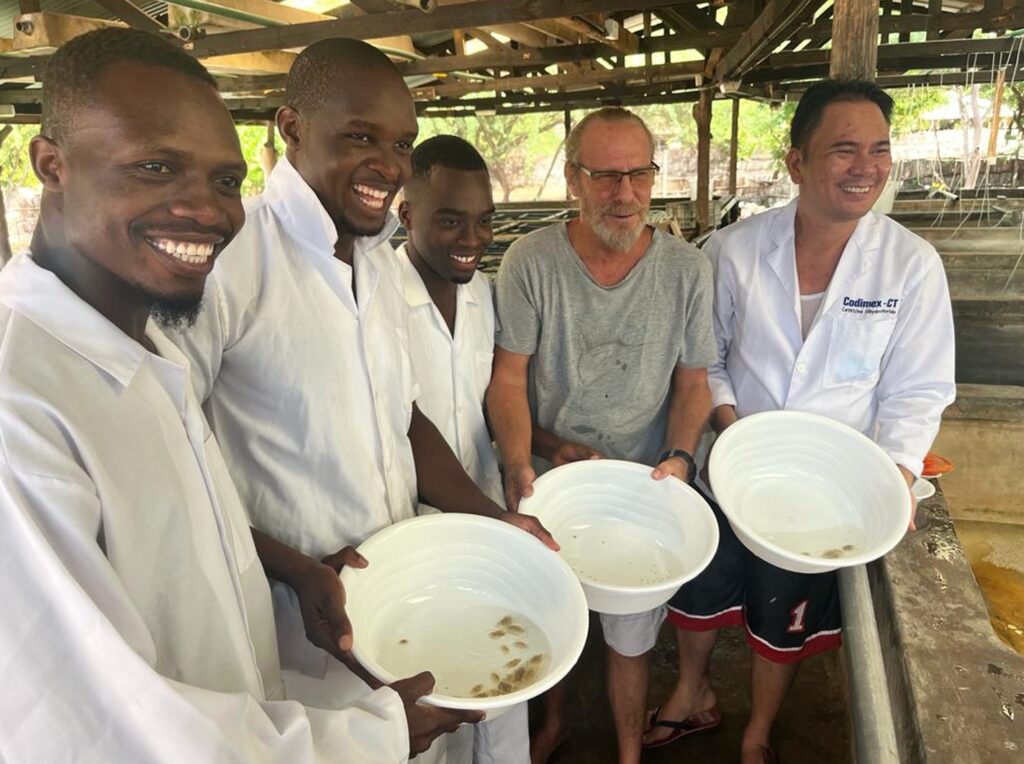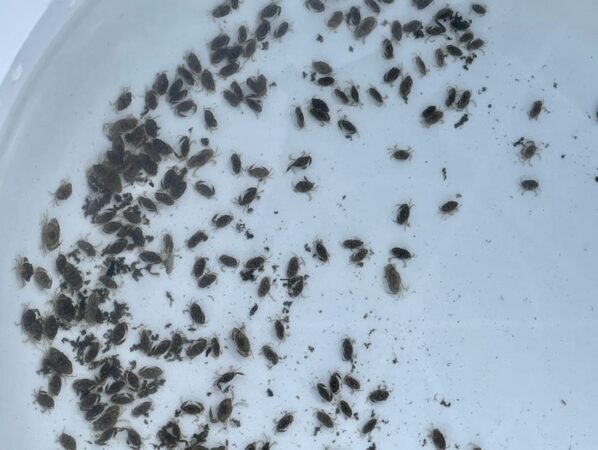
News & Views
First ever crablets produced in Kenya’s mud crab farm
January 9, 2024 By Hatchery International staff
 The CrabsAlive hatchery team (from left): Rodgers Kahindi Kalume, Timothy Kenga Sulubu, John Wekesa Wangila, Justin Aniere and Edmar Bantolio. (Photo: CrabsAlive)
The CrabsAlive hatchery team (from left): Rodgers Kahindi Kalume, Timothy Kenga Sulubu, John Wekesa Wangila, Justin Aniere and Edmar Bantolio. (Photo: CrabsAlive) A Kenyan mud crab farm, CrabsAlive, has produced its first batch of crablets from its hatchery.
Justin Aniere, chief executive officer of CrabsAlive, has been involved in mud crab farming for over a decade, but with support from Scylla, in November 2023, they produced Africa’s first batch of crablets and has been followed up with a second batch in December, with crablets settling just after Christmas.
Aniere is thankful to Scylla, a mud crab consultancy.
“This exciting development is the first step in developing a new mud crab farming sector in Kenya for the benefit of our coastal communities. Whilst early days, we are optimistic that Kenya can now join the list of countries farming mud crabs for both domestic and overseas markets,” he said.
Dr. Colin Shelley of Scylla said the first two batches of crablets produced show the potential for mud crab farming in Kenya.
“The local and international markets for mud crab are strong and fortunately Kenya is home to the largest, fasting growing mud crab species, Scylla serrata. Justin (Aniere) has been a real pioneer in mud crab culture in Africa, and it’s been rewarding to support him and his team reaching this important milestone,” said Shelley.

Crablets from first successful hatchery run at CrabsAlive, November 2023. (Photo: CrabsAlive)
CrabsAlive’s success has support from local and international organizations in aquaculture development in Kenya, including FAO and the Kenyan Government program (KEMFSED), which is supported by the World Bank.
The company has plans to expand its hatchery and nursery production facilities and work collaboratively with local community farmers and is hoping to be able to use some nearby ex-government aquaculture facilities for pond production of mud crabs, the first commercial quantities of farmed crabs in the country.
CrabsAlive also plans to work with the local Bahari Hai Conservation Group, supporting local mud crab fishery conservation efforts.
Print this page





